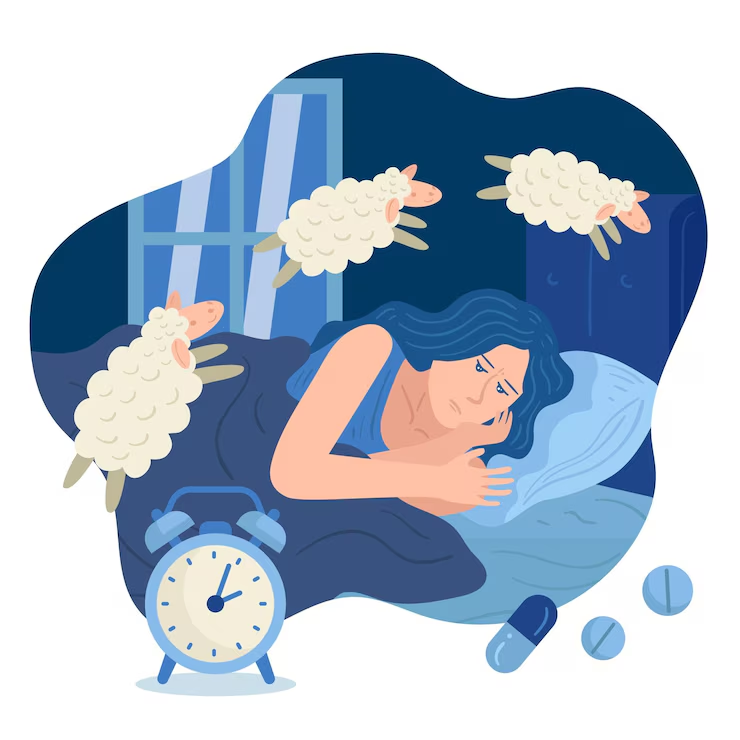Sleep Disorders

What are Sleep Disorders?
Sleep disorders encompass a range of conditions that affect the quality, timing, and amount of sleep, leading to daytime distress and impairment in functioning. They can significantly impact physical health, mental health, and overall quality of life.
Common Types of Sleep Disorders
- Insomnia: Difficulty falling asleep, staying asleep, or waking up too early and not being able to go back to sleep.
- Sleep Apnea: A serious disorder where breathing repeatedly stops and starts during sleep. Obstructive sleep apnea is the most common form.
- Restless Legs Syndrome (RLS): An uncomfortable sensation in the legs and an uncontrollable urge to move them, usually in the evening.
- Narcolepsy: A chronic sleep disorder characterized by overwhelming daytime drowsiness and sudden attacks of sleep.
- Parasomnias: Abnormal behaviors during sleep such as sleepwalking, night terrors, and bedwetting.
Symptoms of Sleep Disorders
Insomnia:
- Difficulty falling asleep or staying asleep
- Waking up too early
- Daytime tiredness or sleepiness
- Irritability, depression, or anxiety
Sleep Apnea:
- Loud snoring
- Episodes of stopped breathing during sleep
- Gasping for air during sleep
- Morning headache
- Difficulty concentrating during the day
Restless Legs Syndrome:
- Uncomfortable sensations in the legs
- Relief with movement
- Symptoms that worsen in the evening or night
Narcolepsy:
- Sudden loss of muscle tone (cataplexy)
- Sleep paralysis
- Hallucinations
- Excessive daytime sleepiness
Parasomnias:
- Sleepwalking
- Night terrors
- Bedwetting
- Talking during sleep
Causes of Sleep Disorders
- Genetics: Family history of sleep disorders
- Medical Conditions: Conditions like asthma, arthritis, heart disease, and Parkinson’s disease
- Mental Health Disorders: Anxiety, depression, and PTSD
- Medications: Some medications can interfere with sleep
- Lifestyle Factors: Shift work, irregular sleep schedules, poor sleep hygiene
Diagnosis of Sleep Disorders
- Sleep History: Detailed history of sleep patterns, habits, and any symptoms
- Sleep Diary: A record of sleep patterns and disturbances over a period of time
- Polysomnography: An overnight sleep study that records brain waves, oxygen levels, heart rate, and breathing
- Actigraphy: A wrist-worn device that tracks movement and sleep patterns
Treatment and Management
Lifestyle Changes:
- Sleep Hygiene: Establishing a regular sleep schedule, creating a restful environment, and avoiding stimulants before bedtime.
- Diet and Exercise: Regular physical activity and a balanced diet can improve sleep quality.
Medications:
- Insomnia: Sleeping pills or sedatives (short-term use)
- Sleep Apnea: Continuous positive airway pressure (CPAP) devices
- RLS: Medications to reduce symptoms, such as dopamine agonists
- Narcolepsy: Stimulants to reduce daytime sleepiness
Therapies:
- Cognitive Behavioral Therapy for Insomnia (CBT-I): Helps change thoughts and behaviors that cause or worsen sleep problems.
- Continuous Positive Airway Pressure (CPAP): For sleep apnea, uses mild air pressure to keep airways open.
Alternative Treatments:
- Relaxation Techniques: Meditation, deep breathing exercises, and progressive muscle relaxation
- Herbal Remedies: Chamomile tea, valerian root, and melatonin supplements
Living with Sleep Disorders
Managing sleep disorders involves a combination of medical treatment, lifestyle modifications, and consistent monitoring. Establishing a regular sleep routine, maintaining a healthy lifestyle, and following medical advice can significantly improve sleep quality and overall well-being.
Preventive Measures
- Consistent Sleep Schedule: Go to bed and wake up at the same time every day, even on weekends.
- Create a Restful Environment: Keep your bedroom dark, quiet, and cool.
- Avoid Stimulants: Limit caffeine, nicotine, and heavy meals close to bedtime.
- Regular Exercise: Engage in regular physical activity but avoid vigorous exercise close to bedtime.
- Manage Stress: Practice relaxation techniques and manage stress through activities like yoga and meditation.

